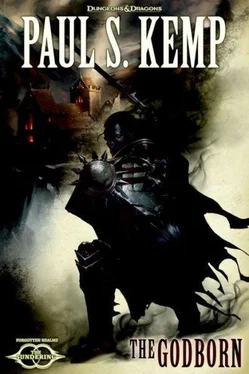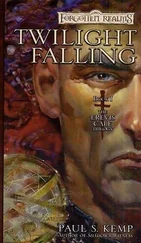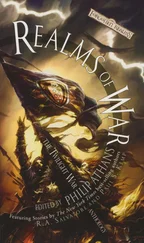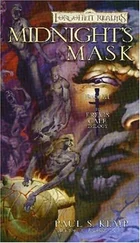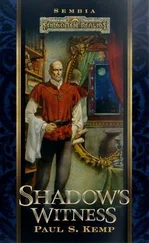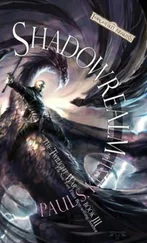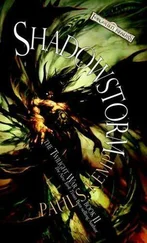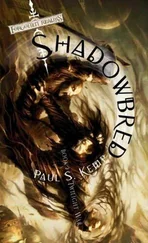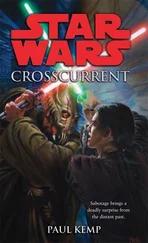Paul Kemp - The Godborn
Здесь есть возможность читать онлайн «Paul Kemp - The Godborn» весь текст электронной книги совершенно бесплатно (целиком полную версию без сокращений). В некоторых случаях можно слушать аудио, скачать через торрент в формате fb2 и присутствует краткое содержание. Год выпуска: 2013, ISBN: 2013, Издательство: Wizards of the Coast, Жанр: Фэнтези, на английском языке. Описание произведения, (предисловие) а так же отзывы посетителей доступны на портале библиотеки ЛибКат.
- Название:The Godborn
- Автор:
- Издательство:Wizards of the Coast
- Жанр:
- Год:2013
- ISBN:9780786963737
- Рейтинг книги:5 / 5. Голосов: 1
-
Избранное:Добавить в избранное
- Отзывы:
-
Ваша оценка:
- 100
- 1
- 2
- 3
- 4
- 5
The Godborn: краткое содержание, описание и аннотация
Предлагаем к чтению аннотацию, описание, краткое содержание или предисловие (зависит от того, что написал сам автор книги «The Godborn»). Если вы не нашли необходимую информацию о книге — напишите в комментариях, мы постараемся отыскать её.
The Godborn — читать онлайн бесплатно полную книгу (весь текст) целиком
Ниже представлен текст книги, разбитый по страницам. Система сохранения места последней прочитанной страницы, позволяет с удобством читать онлайн бесплатно книгу «The Godborn», без необходимости каждый раз заново искать на чём Вы остановились. Поставьте закладку, и сможете в любой момент перейти на страницу, на которой закончили чтение.
Интервал:
Закладка:
Sayeed nodded. Their use of vessels had left a trail of aberrations in their wake.
“Come,” Zeeahd said, and threw up his hood. “We must get to the next village. The urge is strong.” He inhaled as well as his ruined lungs would allow and stared down at the cats. They looked up at him, far too much intelligence in their eyes.
“I can’t let it happen to me,” Zeeahd said softly.
“Let what happen?”
His brother seemed not to hear him and Sayeed was, as always, left to wonder.
The Spellplague had transformed both of them, but differently. Sayeed had been made unable to sleep and increasingly dull to life’s pleasures and pains, his emotions and appreciation of physical sensations had been ground down to nubs.
Zeeahd, on the other hand, had been killed. But the blue fire had not left him dead. Instead, it had somehow filled him with pollution and returned him to life. Sayeed well remembered how Zeeahd looked upon his return: the panicked eyes, the animal scream of terror and pain. He had shivered with cold but, inexplicably, smelled of brimstone, of rot. Zeeahd had pawed frantically at his own body, his breath coming in strained gasps.
“What is it?” Sayeed had asked.
“I’m. . unchanged?” Zeeahd had said, his tone amazed and relieved. “I was torn, Sayeed, burned, flayed. For centuries. I saw the master of that place and he spoke to me, made me promise to seek. .”
Sayeed had thought him mad. “Master? Centuries? You were gone only moments.”
Zeeahd had not heard him. “I’m unchanged! Unchanged!”
But he was not unchanged. His laughter had turned to wheezing, then coughing, then his first purging, and both of them had stared in horror at the squirming black mass expelled from his guts.
“Oh, gods,” Zeeahd had said. He’d wept as if he understood some truth that Sayeed did not. “It’s in me still, Sayeed. That place. It’s a curse, and it wants to come out.”
Only later had Sayeed learned that Zeeahd’s soul had gone to Cania, where his brother had forged a pact with Mephistopheles to seek out someone the archdevil could not find alone. And only later had Sayeed learned what the purging actually meant, what it would require, again and again until Mephistopheles set them free of their afflictions.
“Come on,” he said, hating himself for saying it. “We’ll find you someone.”
They walked on, two men who weren’t men and thirteen cats who weren’t cats, bent under the weight of the rain. In time they came upon a packedearth wagon road.
“Must be a village near,” Sayeed said, scanning the shapeless black expanse of the plains. Wisps of shadow clung to the trees and scrubs, a black mist.
Zeeahd nodded, his head bobbing strangely on his neck. His voice, too, sounded odd when he spoke.
“Let’s hope so.”
Gerak awoke before sunrise, or so he judged. Dawn’s light rarely penetrated Sembia’s shadow-shrouded air, so he relied for timekeeping on the instincts he’d sharpened as a soldier.
He stared up at the ceiling beams of the cottage, listening to the soft roll of distant thunder through the shuttered windows, the patter of rain on the woodshingled roof. He hoped it was ordinary precipitation. Ten days earlier a stinking black rain had fallen, and whatever it had borne in its drops had fouled the soil. Soon after, the barley crop had begun to wither and the autumn vegetables- especially the pumpkins-had browned on the vine. They’d done what they could to minimize the loss, but the whole village keenly felt the absence of a greenpriest of Chauntea. The villagers’ own prayers to the Earth Mother, whispered in small, secret gatherings, as if in fear the Shadovar in their distant cities and floating citadel would somehow overhear, went unanswered. Winter would bring hardship for them all. Another black rain would ruin the harvest altogether.
He and Elle would have to put up as much food as they could before first snow.
And that meant he would have to risk a hunt.
The thought of it sped his heart, although he wasn’t sure if that was out of fear of what he might encounter on the plains or out of fear of Elle’s reaction.
She lay beside him, her form covered in the tattered quilts, her breathing the deep, regular intake of sleep.
Moving slowly, so as not to awaken her, he swung his legs off of the strawstuffed mattress and sat on the side of the bed. He tried to squelch a cough but only half managed. Elle did not stir.
He sat there for a time, his bare feet flat on the cold wood floor, and waited for wakefulness. The damp air summoned the aches that lurked in his joints and muscles, and he massaged first one shoulder, then another. Age was turning him brittle.
He tried to swallow away the foul taste of morning but could not summon the spit. He grabbed the tin cup on the bedside table, swished the leftover tea, and drank it down. Cold and bitter, like the morning.
He rubbed the back of his neck and considered the one-room cottage, lit faintly in the glow of the hearth’s embers: furniture he’d made from the straight, dark limbs of broadleaf trees, bowls and cups and pans that had served three generations. He tried to imagine their baby crawling on the floor, but could not quite do it. He tried to imagine how they would provide for the baby and could not quite do that, either.
Elle’s pregnancy had been a surprise to them both.
Gerak had resigned himself to childlessness long before. Ten seasons of marriage had produced not a single pregnancy, so they had assumed one or both of them was sterile. At the time, Gerak had thought it just as well. The world seemed too dark for children.
And then Elle had told him, her voice quaking.
“I think I’m with child, Gerak.”
The joy he’d felt had surprised him, as if the child were a key to a locked room inside him that held happiness, that held possibility. In a moment, the stakes of his life had been raised-a child would rely on him.
The realization terrified him.
He wondered if they should leave Fairelm. Many of their friends and neighbors had already abandoned the village-the Milsons and Rabbs the most recent. They had braved the darkness, the Shadovar, and the Shadovar’s creatures, and made for the sun. He didn’t know if they’d gone west for Daerlun or north for the Dales. He wasn’t sure it mattered. War or the threat of war seemed everywhere in Sembia. The big cities were the sites of musters, the borders were the sites of battles, and the villages and towns in between were left to fend for themselves. He didn’t know what to do.
Elle was still able to travel, and they owned a wagon, a pack horse. They could sell their remaining chickens, gather up their goods, and head northeast. Gerak knew how to handle a blade and was matchless with his bow. Maybe they could avoid the soldiers, and Gerak could protect them from the creatures that prowled the plains.
He tried to coax another drop of tea from the cup. Nothing. He tried to coax from himself the will to leave. Nothing.
Leaving seemed too dangerous, and felt too much like surrender, like a betrayal, and neither was in him. He had been raised in the cottage, as had his father and grandfather before him. And despite the perpetual shadow that covered Sembia, despite the dire creatures that prowled the countryside, despite the sometimes harsh rule of the Shadovar, his father and grandfather had managed to eke out a living from the land. They had taken pride in it.
And so did he.
He hadn’t always. He’d thought a farmer’s life contemptible in his youth, and had run off to serve in one of the Shadovar’s many wars. He’d killed more than a dozen men with his bow, but only one, the last, with his blade. Killing felt different up close. Gerak had seen his reflection in the dying man’s eyes and that had been all he wanted of war ever again.
Читать дальшеИнтервал:
Закладка:
Похожие книги на «The Godborn»
Представляем Вашему вниманию похожие книги на «The Godborn» списком для выбора. Мы отобрали схожую по названию и смыслу литературу в надежде предоставить читателям больше вариантов отыскать новые, интересные, ещё непрочитанные произведения.
Обсуждение, отзывы о книге «The Godborn» и просто собственные мнения читателей. Оставьте ваши комментарии, напишите, что Вы думаете о произведении, его смысле или главных героях. Укажите что конкретно понравилось, а что нет, и почему Вы так считаете.
